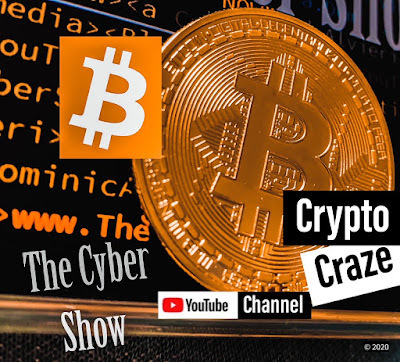To Spoof or Not to Spoof?
The spoofing question.
By Dominic Alvieri, @AlvieriD
March 10th, 2021
Smishing, spearing, phishing or whaling the targets may vary but the goal is the same. Get you to click.
During a busy day would this alert make you click? Always go to the account directly to verify.
What would you do? Would you click?
From top to bottom you have to secure your phone lines and networks. Now.
Exchange server hacks and rising Bitcoin prices probably means more malware attacks and intrusion attempts. They so cost effective and the margins are only getting better.
Phishing and smishing are also on the rise as are SIM jackings and swaps. You can lose everything on your phone. That should make you think twice.
Executives should have their personal phones secured as well.
AT&T is integrating more security features like voice recognition technologies to help secure customer accounts.
More companies should follow.
That helps secure the account.
Now on to the spoofing issue.
Email spoofs are still all the rage for the spear or whale minded scammer on the internet. SMS texts are catching up quickly. More and more new short domains area appearing with malicious links in the first quarter of 2021.
The number one entrance point for ransomware groups and malware is still the phish. Can the smish be far behind? Exploits are changing but the vulnerability is the same. The human element.
DotCom, .net, .me, .info, nearly every domain has an issue. The FBI warned late last year of new short domains appearing in 2020 and the trend is accelerating. This group of new short domains as well as the fake Apple iPad giveaway are all leading to the same group of bad actors in Hong Kong, China.
The map above is the geolocation of the malicious links. Fake Apple, Hulu, Netflix and several others have been traced back to the same area.
This was an attempt in 2020 located in what looks the same block. Apple, Sony, Netflix and Hulu giveaways are geared towards the general public. Most bank, PayPal and even the fake Venmo below are also for the general public.
Others are crafted better like this Venmo spoof below.
A prior poor example below. Both are spoofed emails with bad results if clicked.
Sadly many people click on these spoofed emails and texts.
Security alert warnings from any email or text should be verified directly with the company in question itself, not the notice.
The executive spoof is better crafted and tailored to the person. It generally isn't from an unknown account or general public spoof. The whale will usually get a link from a trusted source that is spoofed professionally. Targeted. Direct.
Bad actors are hoping for impulse clicks on login warnings.
The warnings and notices continue. The best advice is to check your accounts directly.
Leave the clicking and tracing to the professionals and authorities.
Secure any and all accounts with MFA. Choose Google or Microsoft Authenticator over SMS.
Signal and VPNs are preferred methods of communications.
Stay safe online and off. Many viruses are around. Covid is too.
The Cyber Show
and
CyberSecurity Show
on
Google Blogger
Twitter @AlvieriD
Dominic Alvieri, Analyst, Hacker and Tracker















Comments
Post a Comment